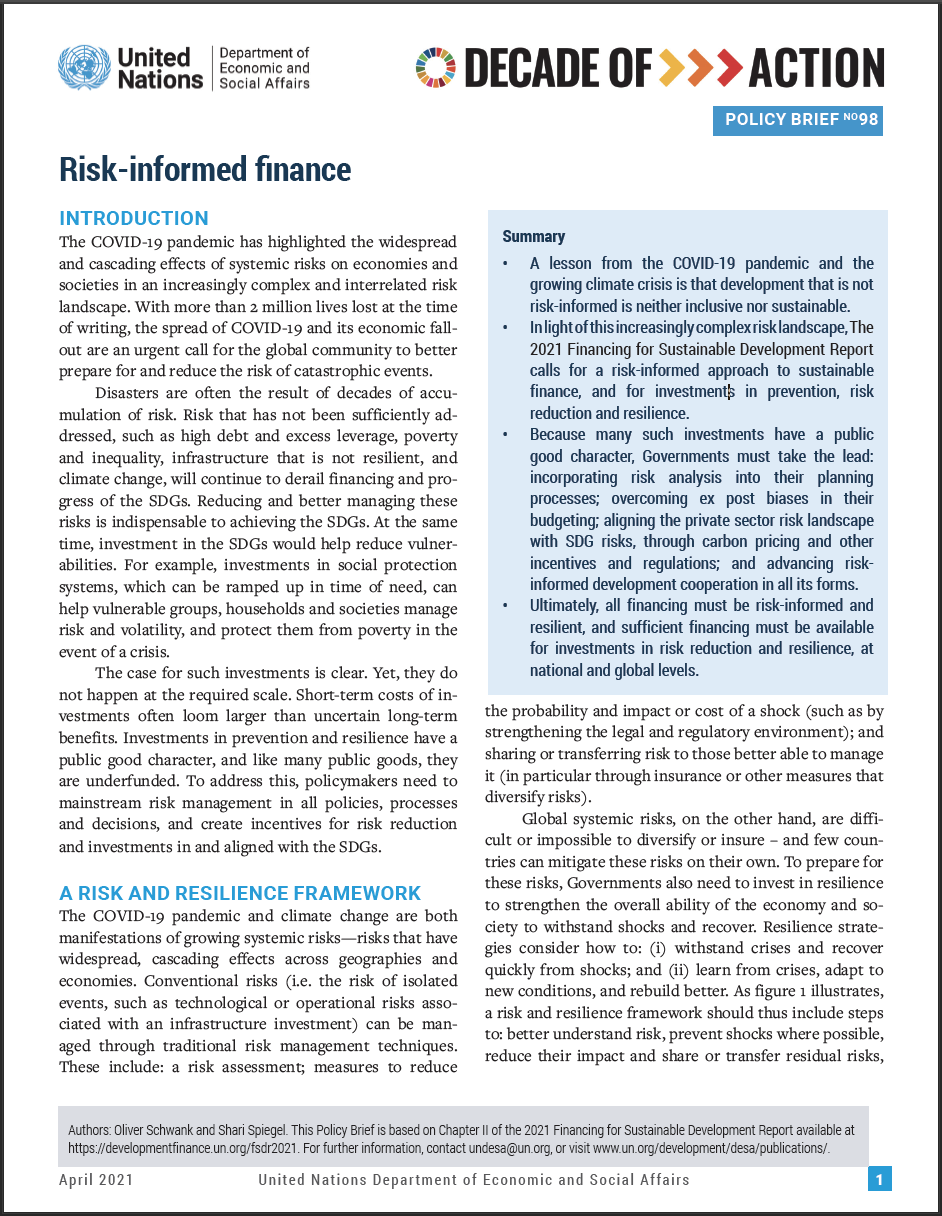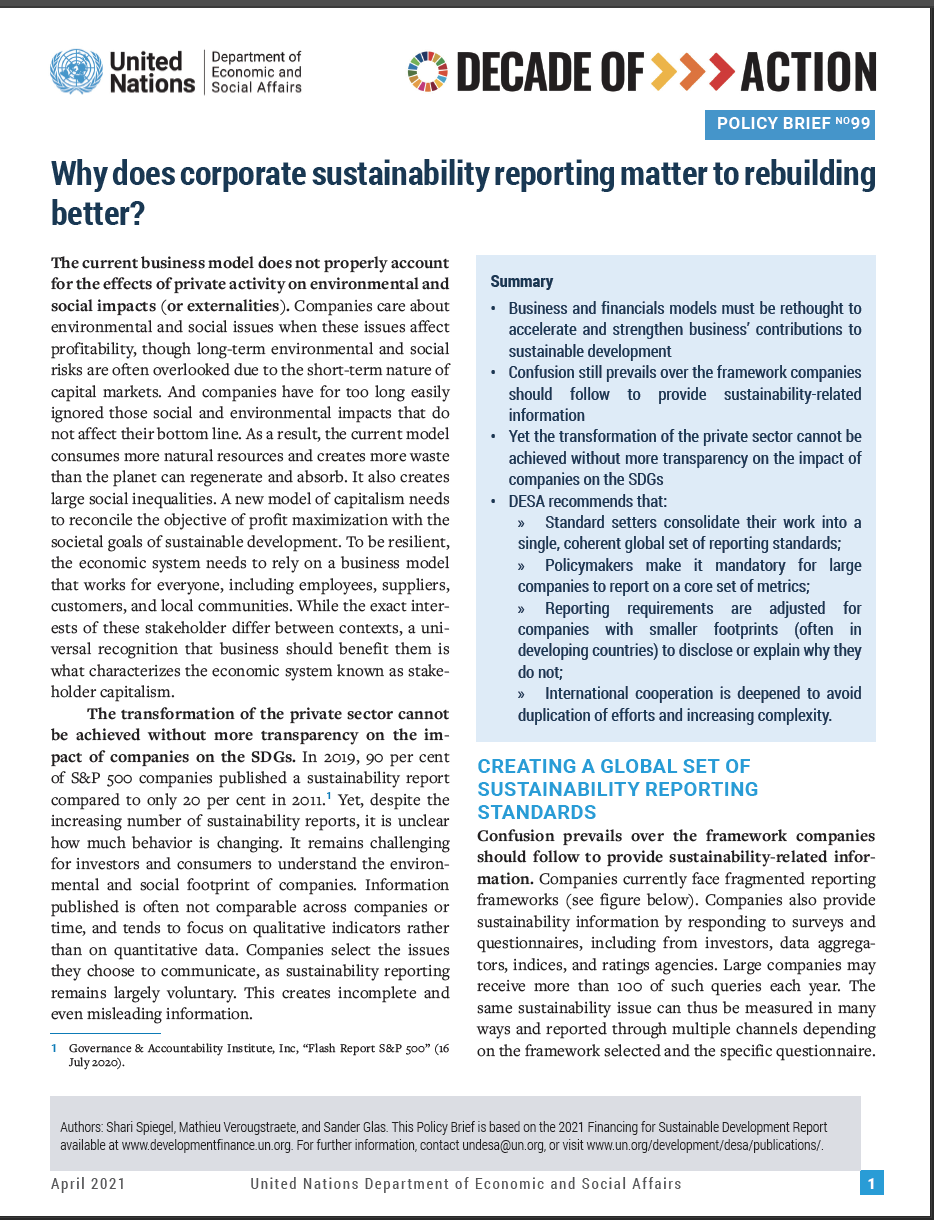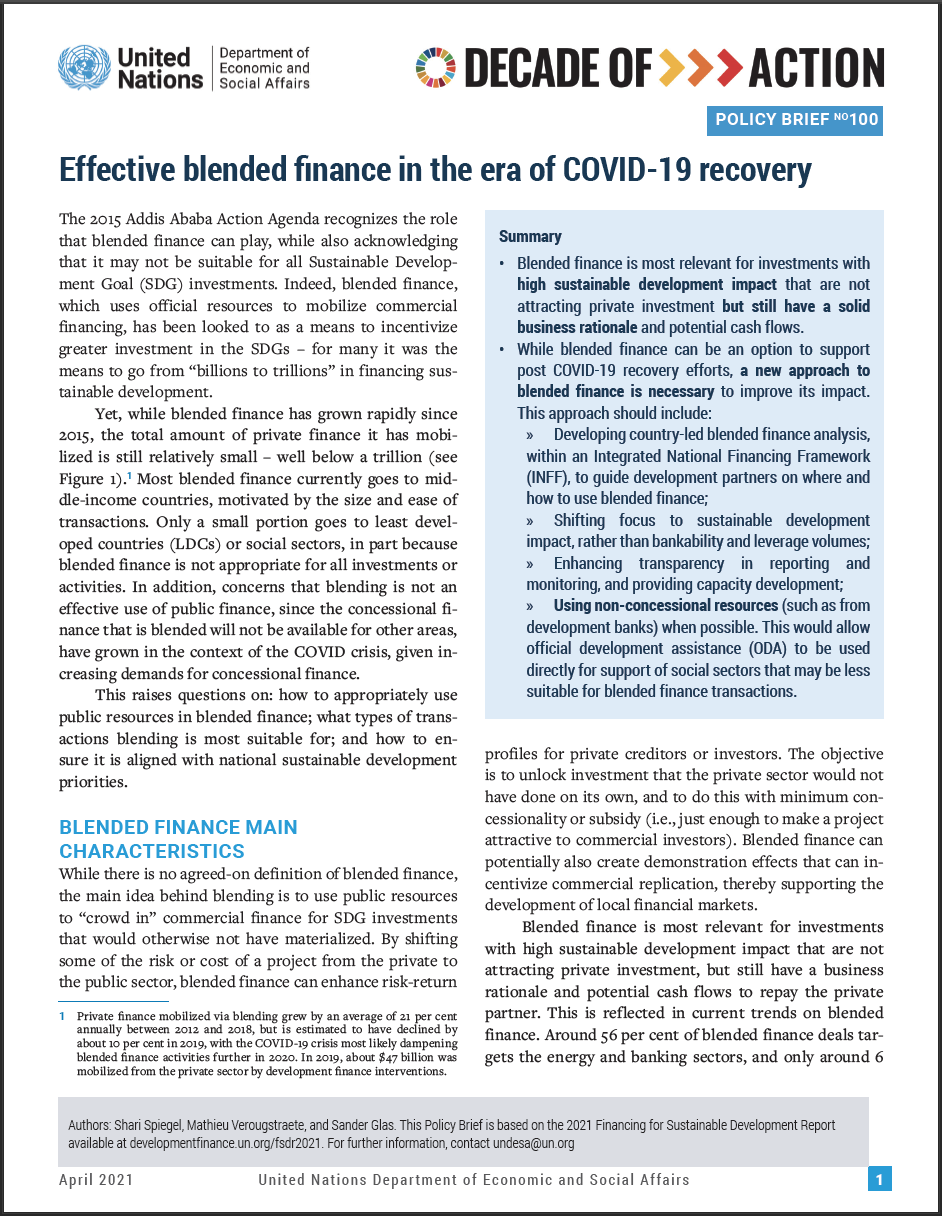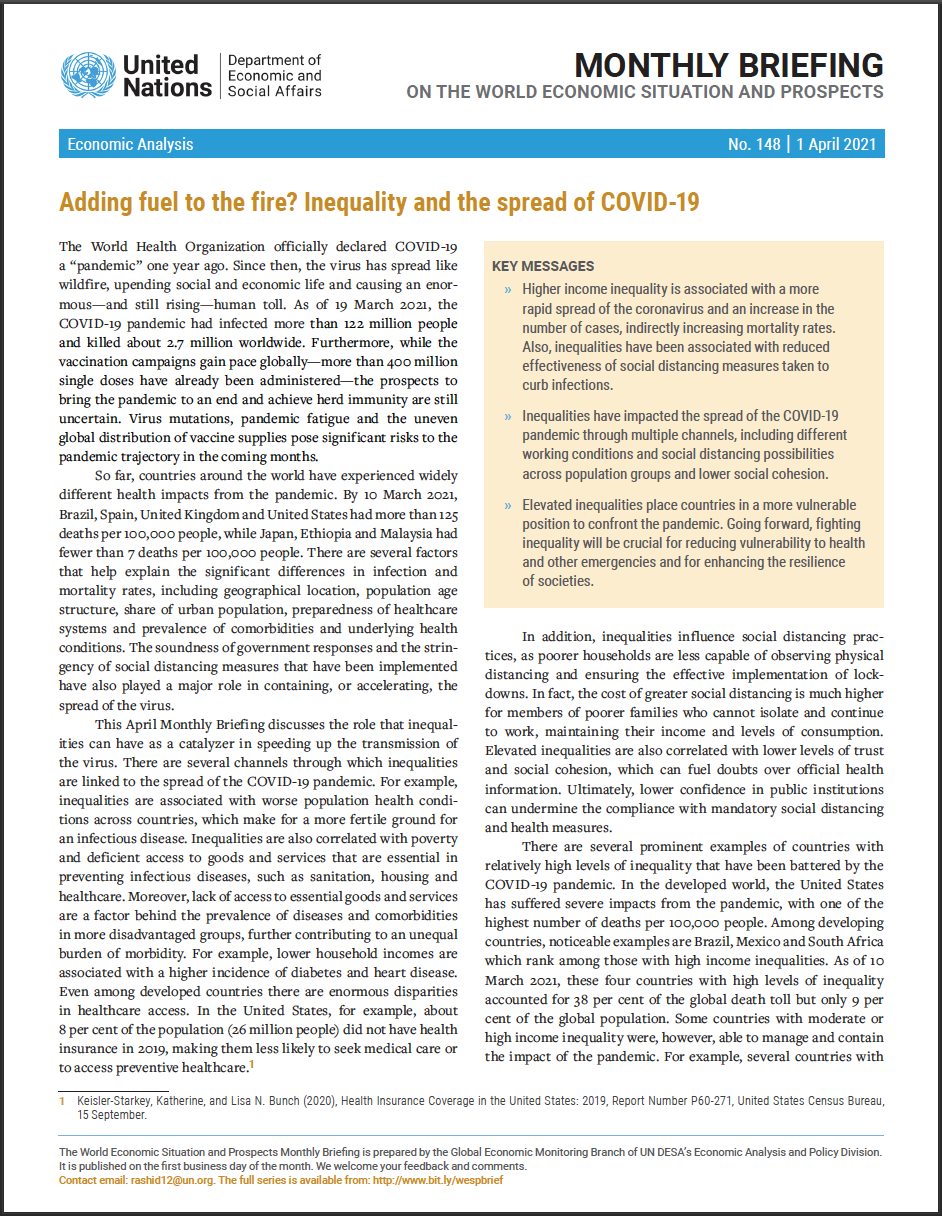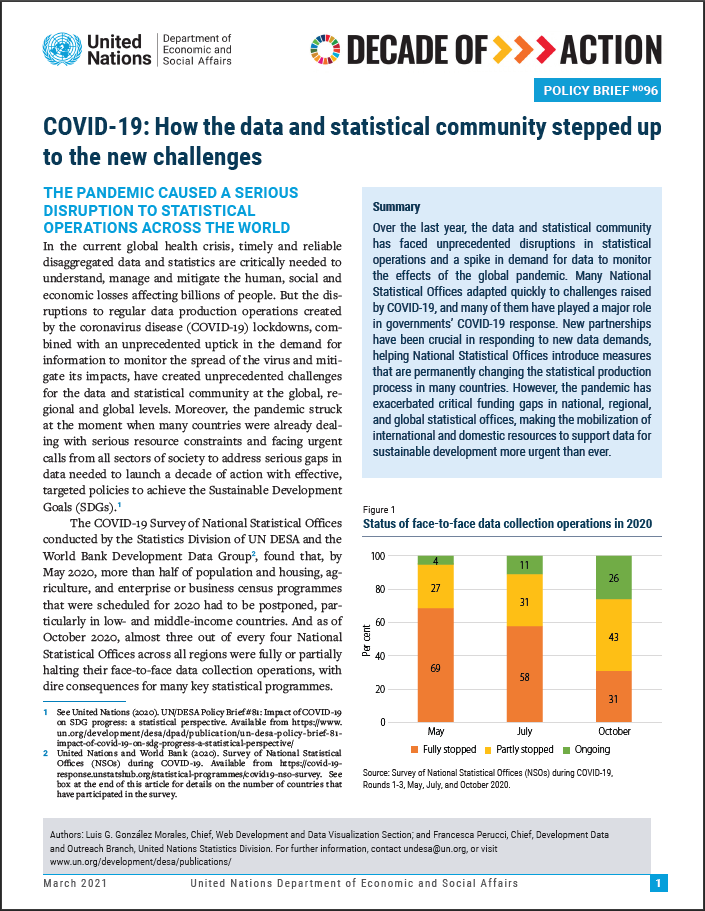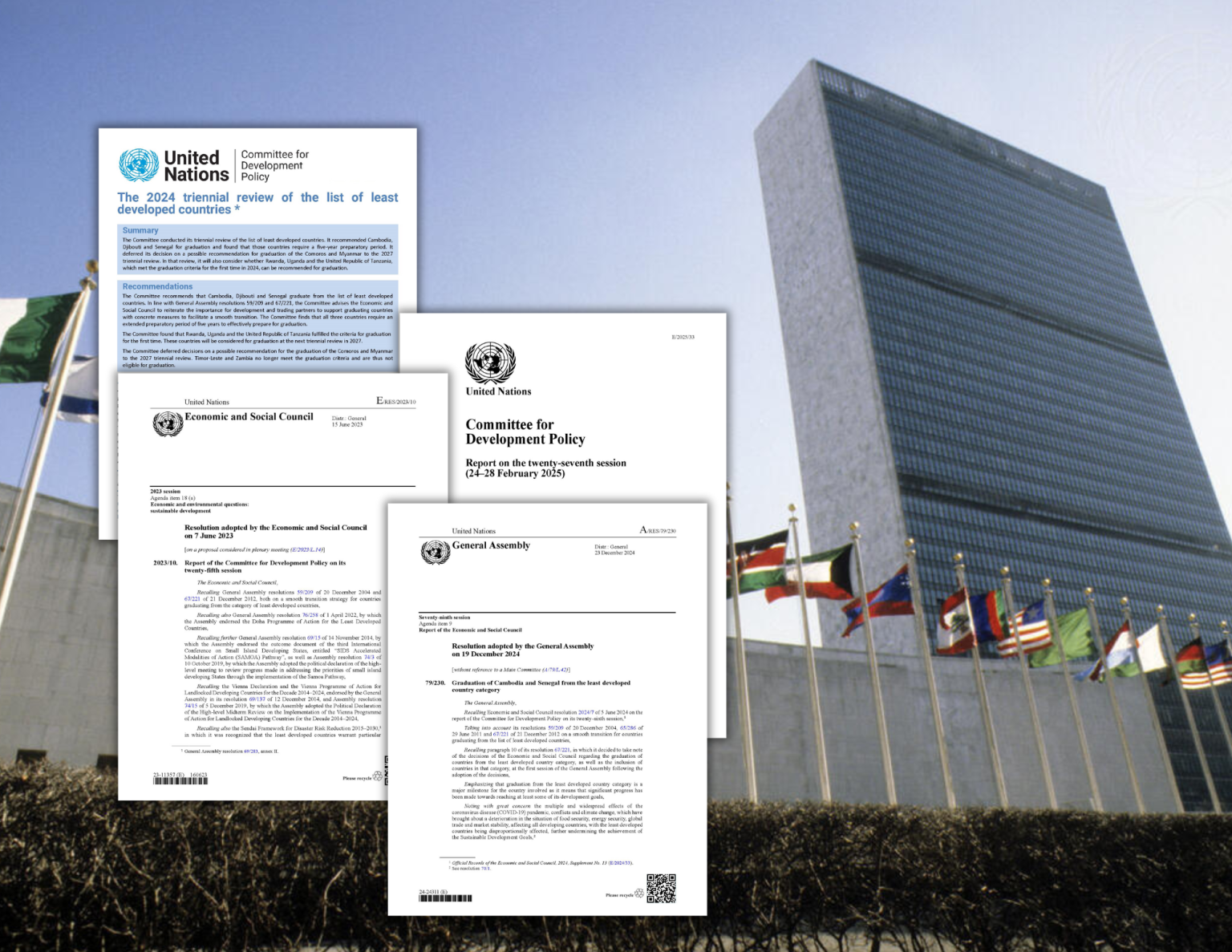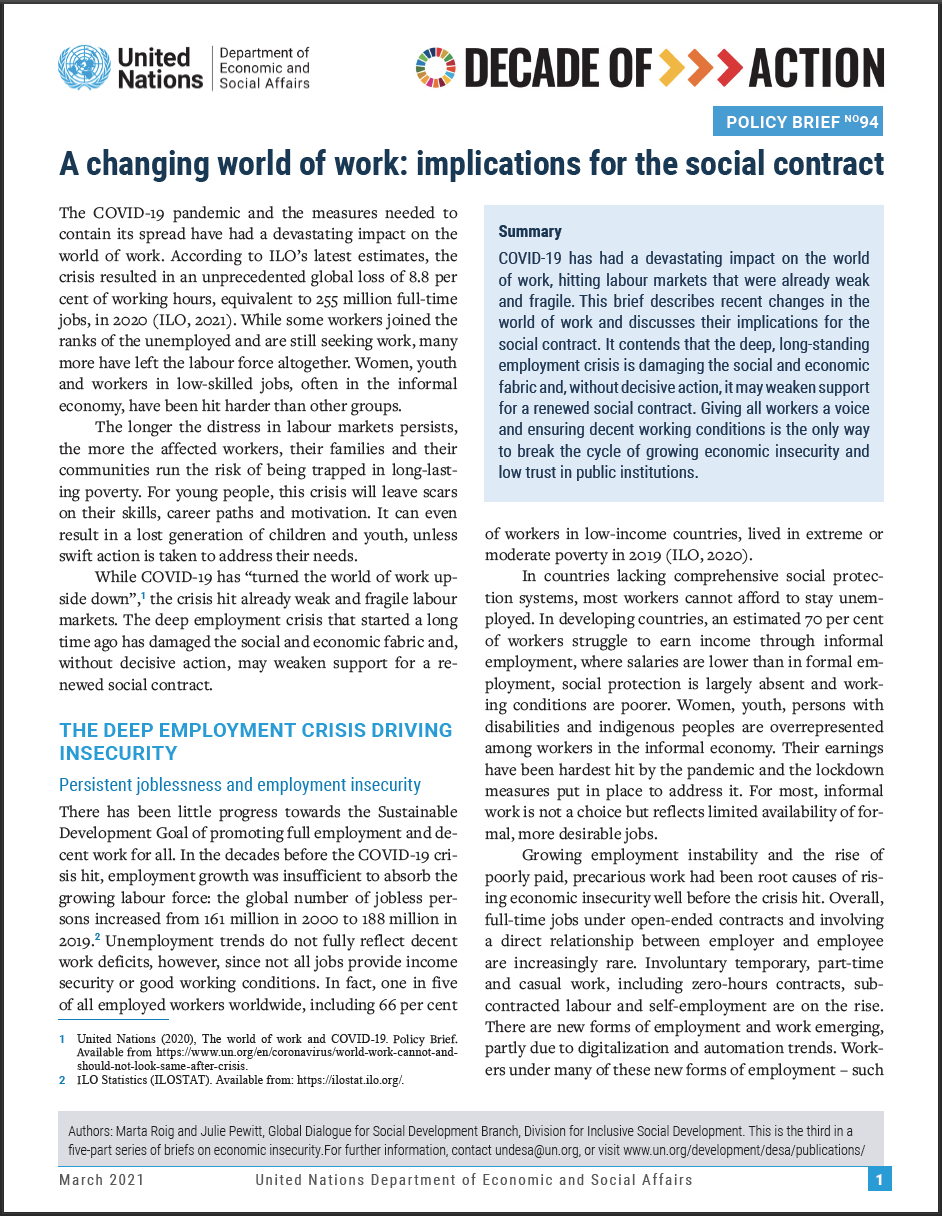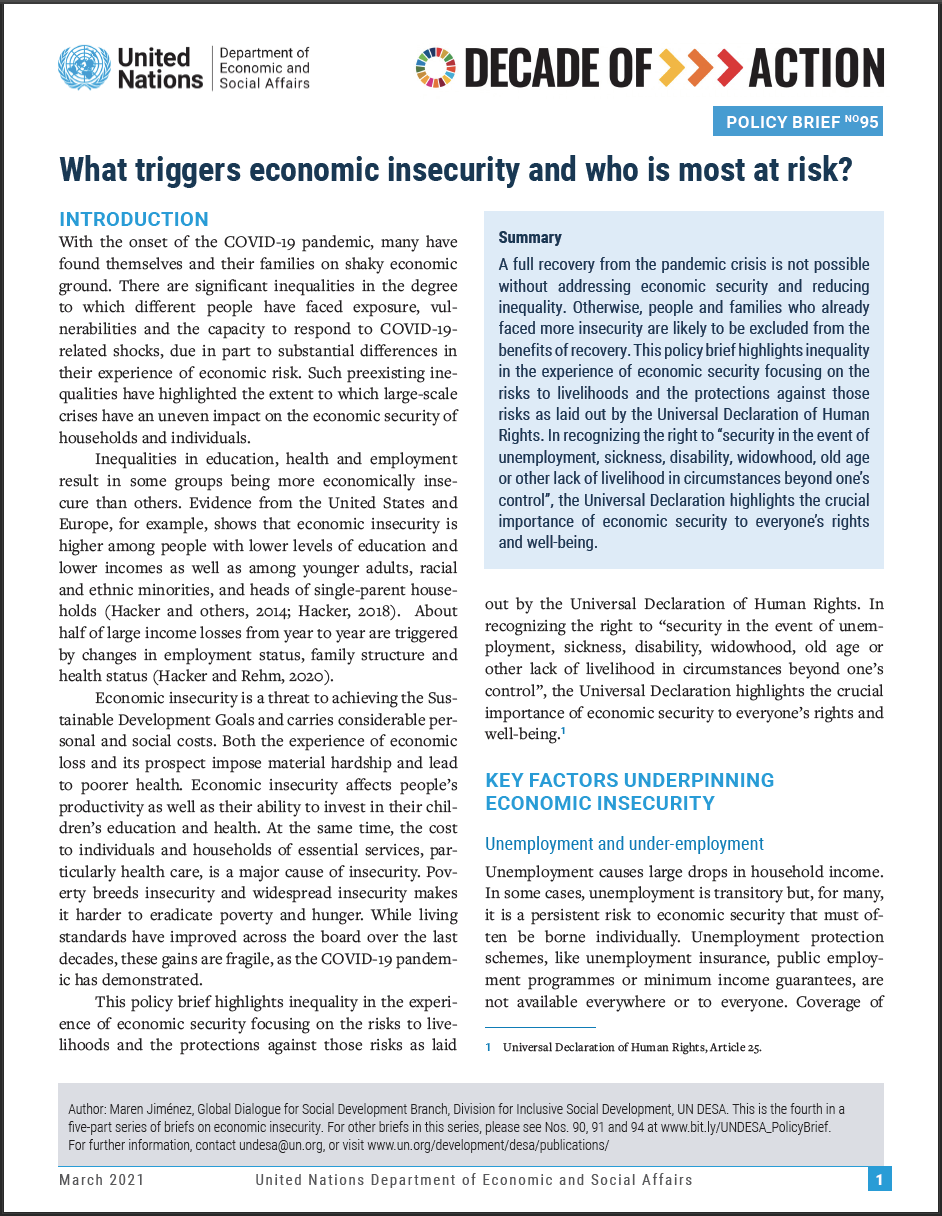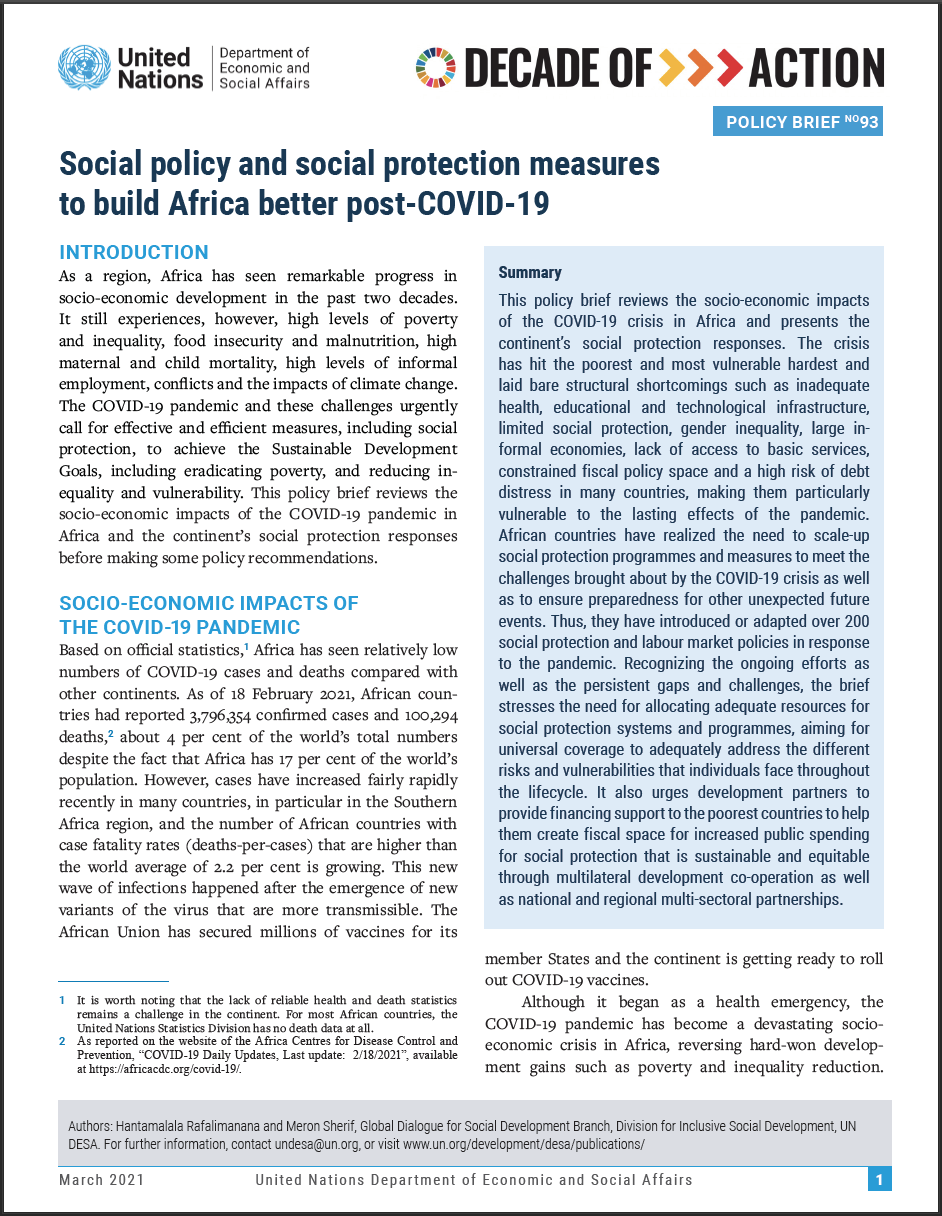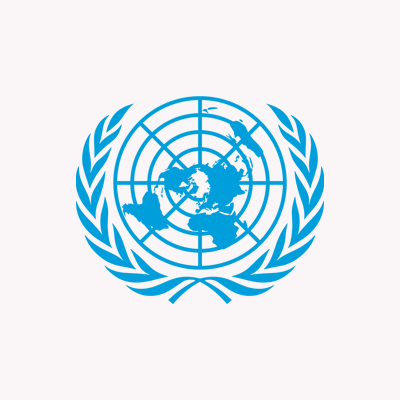Publications
Displaying 211 - 220 of 1081
عربي, 中文, English, Français, Русский, Español CDP excerpts on the report by theme Sustainable and resilient recovery from the COVID-19 pandemic that promotes the economic, social and environmental dimensions of sustainable development: building an inclusive and effective path for the achievement of the 2030 Agenda in the context of the decade of action and delivery for sustainable development The impact of COVID-19 on the LDC category The 2021 triennial review of the list of LDCs Monitoring of countries that are graduating and have graduated from the list of least developed countries Improved assistance for…
 Welcome to the United Nations
Welcome to the United Nations
